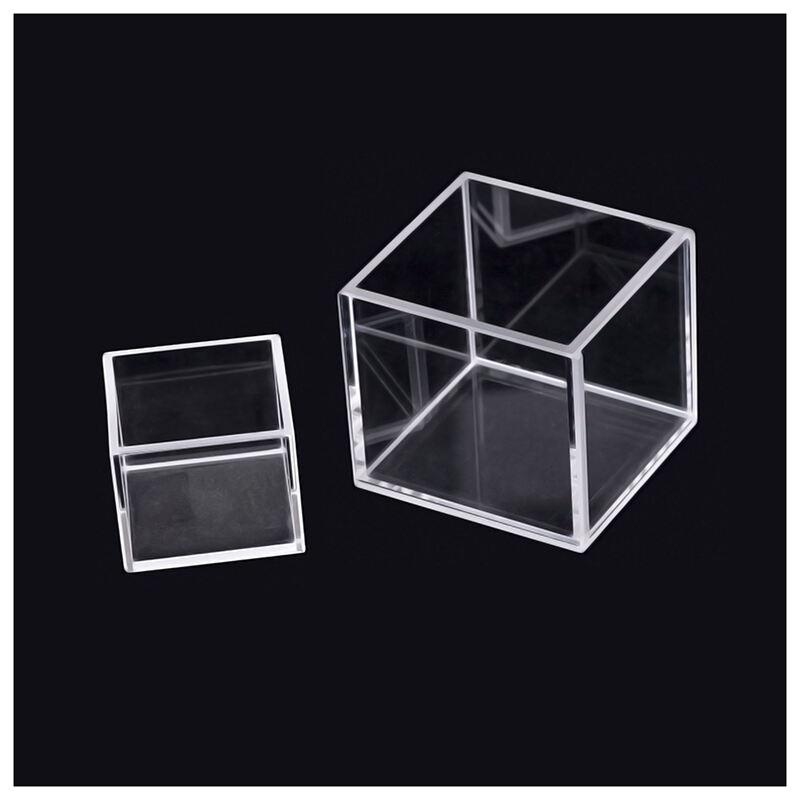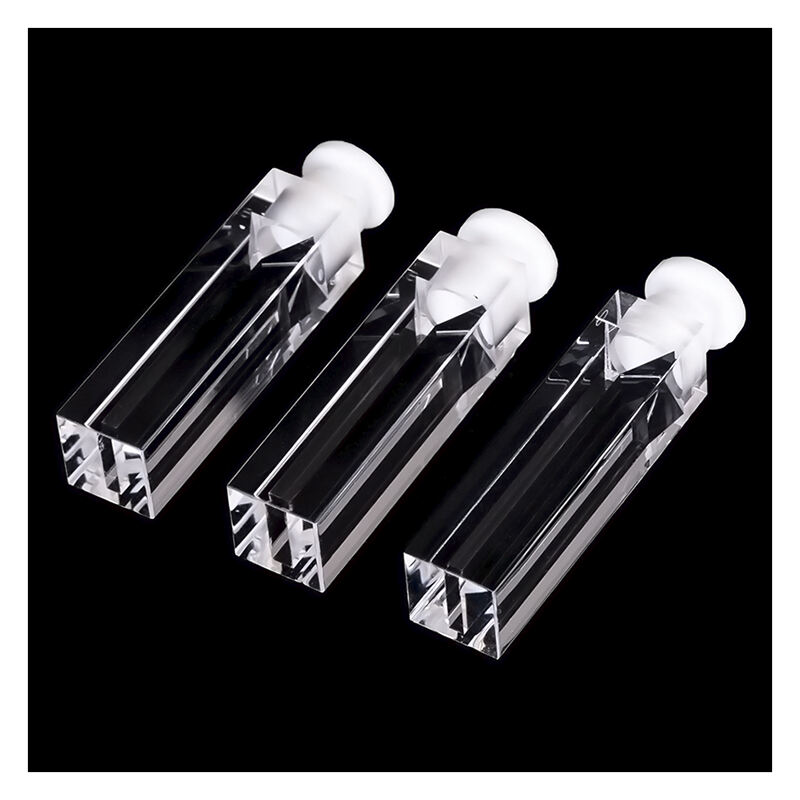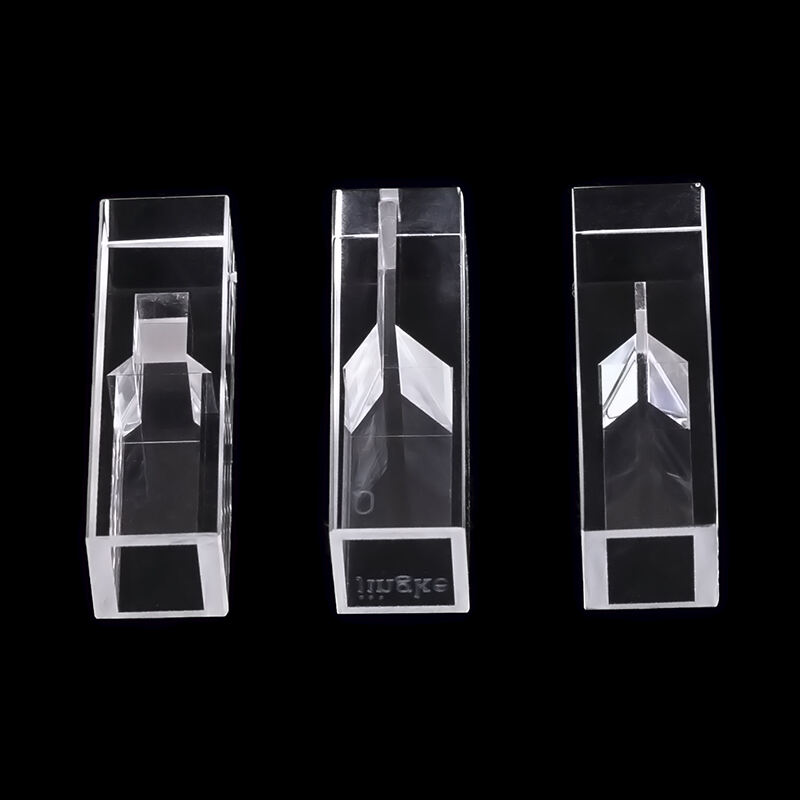When scientists want to measure how much light passes a liquid, they use a device known as a cuvette. A cuvette is a small glass (clear & see-through) container. It is an essential step because the scientists can understand the chemicals in different liquids and the nature of the response of these liquids to light. Cuvette which help to lighten up interactions in liquids.
There are many types and shapes of cuvettes, but they all serve a similar purpose and structure. They are transparent and let the light pass through. There are openings at both ends of each cuvette. When scientists are intending to test a liquid, they will pour that liquid inside the cuvette. When the liquid is in, the cuvette goes into a special machine called a UV spectrophotometer. Here, a beam of light passes through a sample in a cuvette. Scientists then measure how much light goes through the liquid; The collected results are in notes. This is necessary to obtain correct information regarding the liquid undergoing test.
When Scientists Select a cuvettes for Experimental Research, There Are Considerations to Keep in Mind To know that, first they think about what kind of liquid they are testing. Certain liquids can damage some cuvette types, making it crucial to select a cuvette that is compatible with the liquid used in the experiment. So if a scientist is testing a particularly strong acid, they need a cuvette that won't break down or be damaged when testing that acid.
Second, the scientists consider about the light that will be used in the experiment. Different cuvettes are designed to function best with particular types of light, referred to as wavelengths. This correlation implies that each cuvette is compatible with a specific type of light, therefore it is very crucial to utilize a cuvette that corresponds to the relevant wavelength of light employed in the experiment. Choosing the incorrect cuvette may lead to false results, and this could cause errors in the study in science.

In science, getting the right results is really important. The readings will also be incorrect or ambiguous if the cuvette used is not made for the kind of light employed. Even tiny scratches or scuffs on a cuvette’s surface can alter the amount of light that passes through the liquid inside. This can cause errors in the data the scientists collect. This is why scientists must routinely wash and maintain their cuvettes. This allows them to keep close attention on their experiments and ensure that they are achieving the best, most accurate results possible.

Scientist needs to properly clean cuvettes to ensure they. Continue to work well and their results remain accurate. The first time you use a new cuvette, it needs to be washed with a mild soap or detergent. The glass cuvettes should then be rinsed with clean, deionized water. This guarantees that no soap or chemicals were left in the container that need to be accounted with the experiment.

Because disposable glass cuvette are easy to use and do not require cleaning, many scientists prefer to use them. However, pocket cuvettes are disposable and can be expensive to replace when they break or need to be replaced. Many scientists opt for reusable cuvettes to save money. These cuvette glass can be washed and reused up to multiple times making it economical as well as eco-friendly. With reusable cuvettes, scientists will be able to save lots of money over time since they will not have to keep buying new ones.
Jinko Optics is committed to providing customers with high-quality products with high cost performance. By optimizing production processes and management processes and reducing production costs, the company can provide more favorable prices while ensuring the excellent performance of products in quality and function. In addition to the excellent quality of the products themselves, the company also pays special attention to after-sales service, providing timely technical support and professional solutions to ensure that problems encountered by customers during use are quickly resolved. This customer-oriented service concept enables Jinko Optics to stand out in the fiercely competitive market and win the trust and praise of a wide range of customers.
Jinko Optics can provide fully customized solutions for the specific needs of different industries and customers. Whether it is drawings and samples provided by customers or personalized needs for special application scenarios, Jinko Optics can accurately design and produce optical components that meet the requirements. This flexible customization capability is particularly suitable for the precise needs of scientific research institutions, laboratories and specific industries. In addition, the company's rapid response to market changes and customer needs can ensure that customers always get the latest and most suitable technical support and products.
As the drafting unit of the national standard for cuvettes, Jinko Optics has very high standards for product quality. Every cuvette and optical component produced by the company follows the ISO9001:2016 standard, strictly controls every link in the production process, from the selection of raw materials to the factory inspection of finished products, to ensure that every product meets high quality requirements. In addition, it has 6 invention patents and 16 utility model patents, reflecting the company's continued investment in technological innovation and process optimization, so that the products not only have excellent performance, but also have unique market competitiveness.
With more than 50 years of R&D and manufacturing experience, Jinko Optics has accumulated rich technical and practical knowledge in the field of spectral accessories. For a long time, focusing on the research and development of core products such as cuvettes, flow cells, optical components, and vapor cells has not only improved the company's technical position in the industry, but also enabled the company to quickly respond to various complex application requirements. The accumulation over the years has helped the company to continue to innovate and always be at the forefront of the industry.